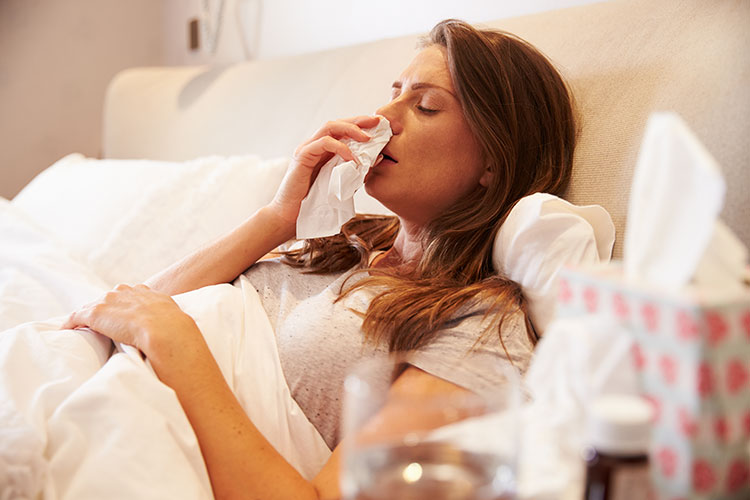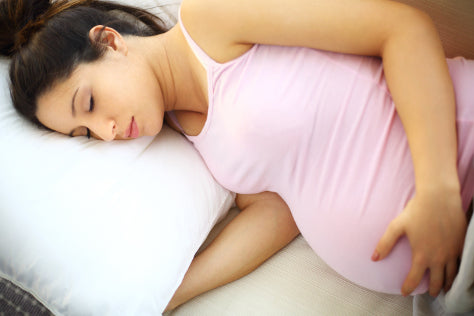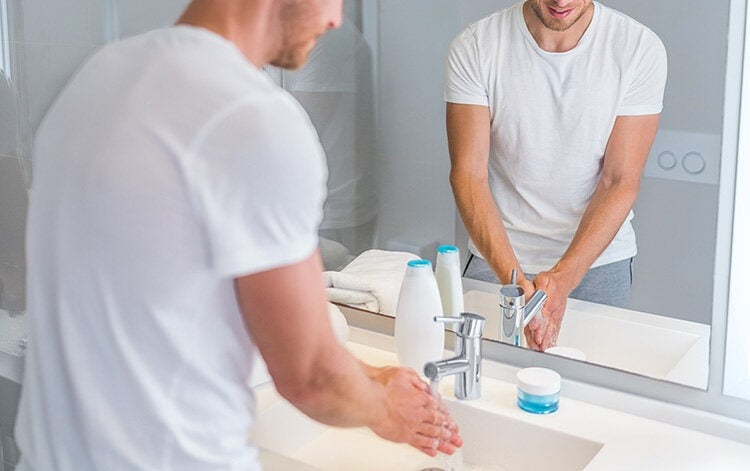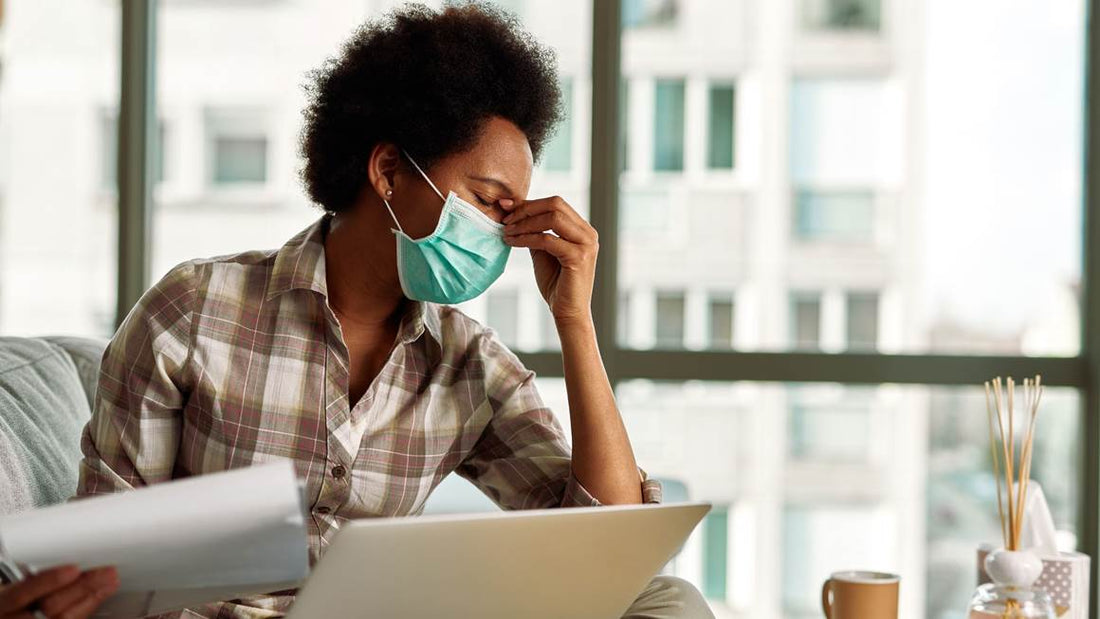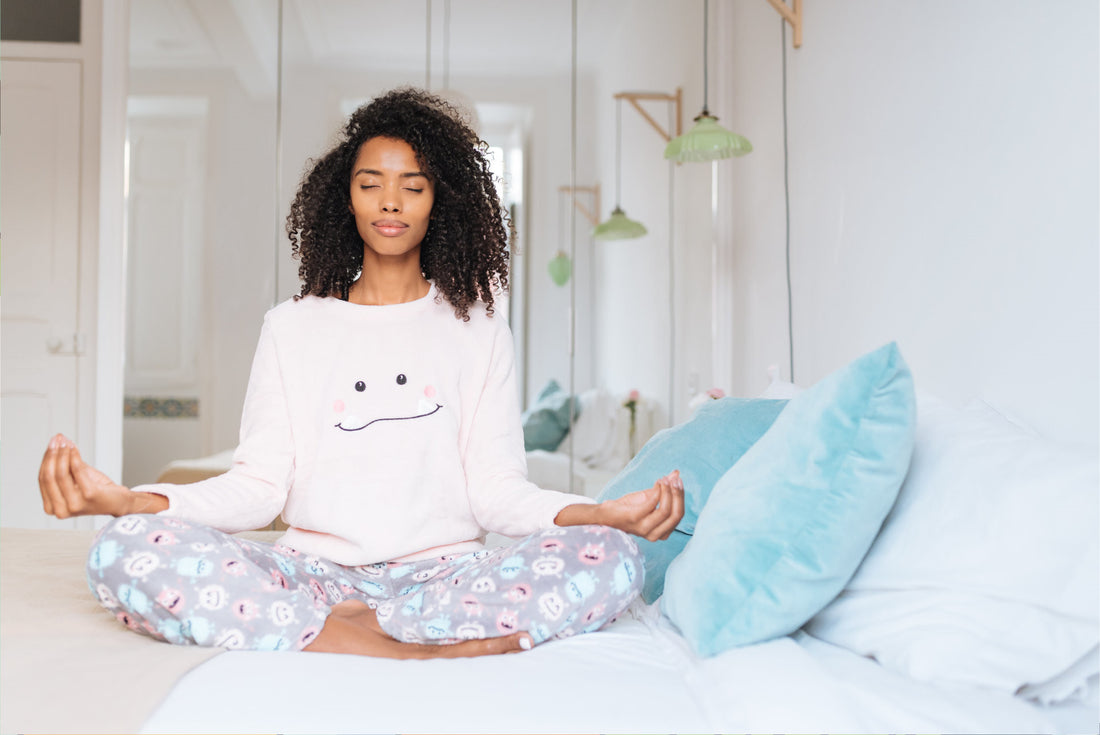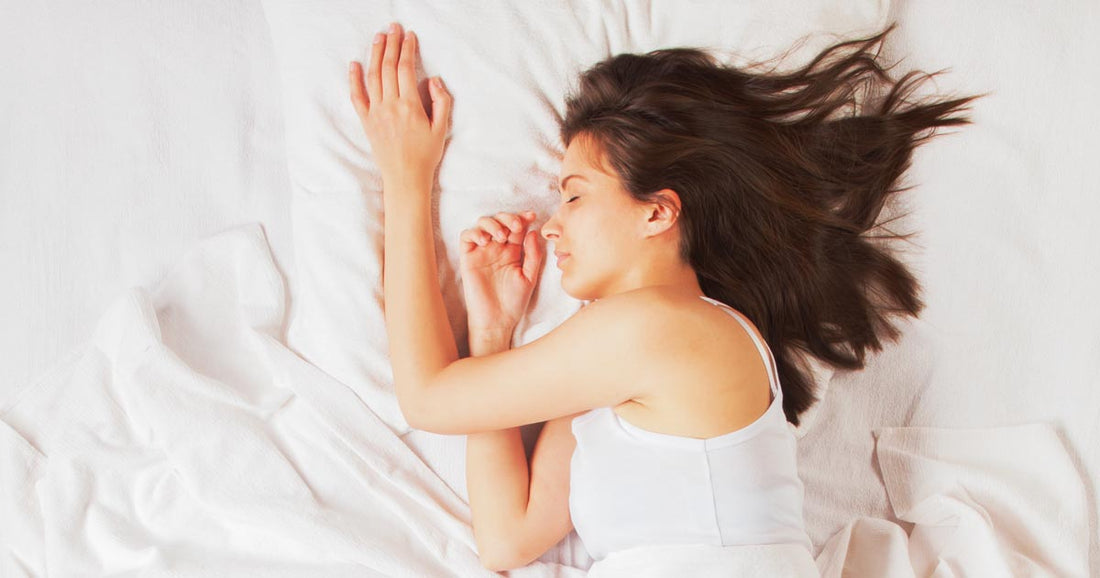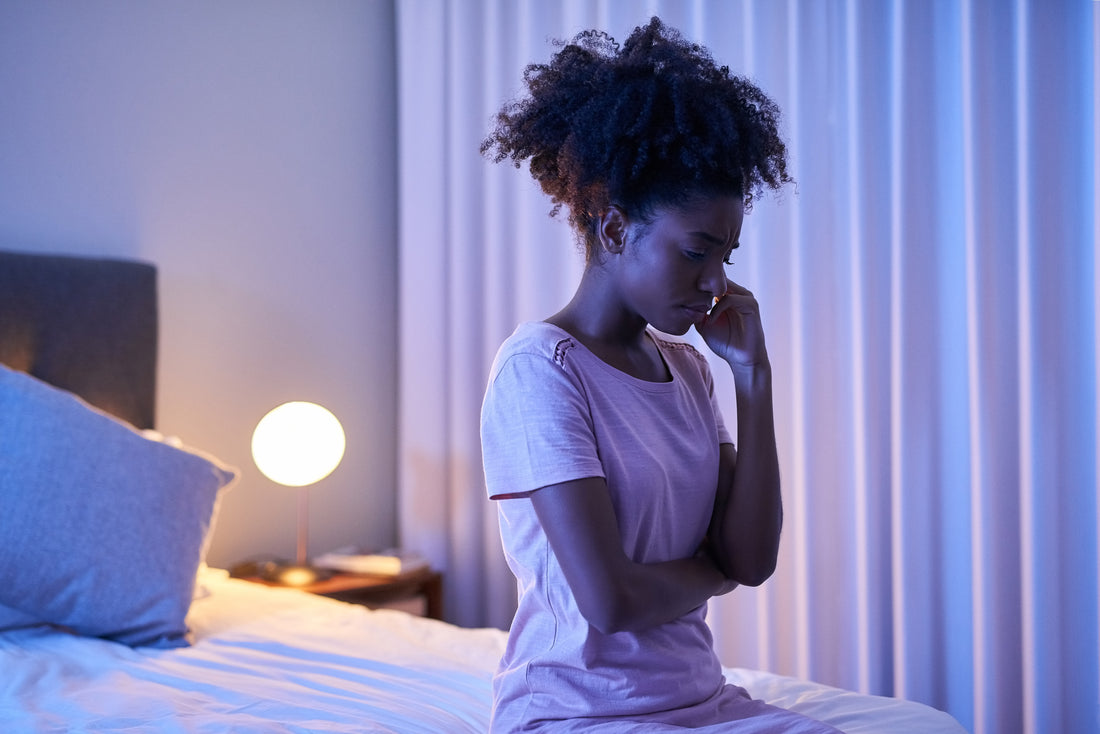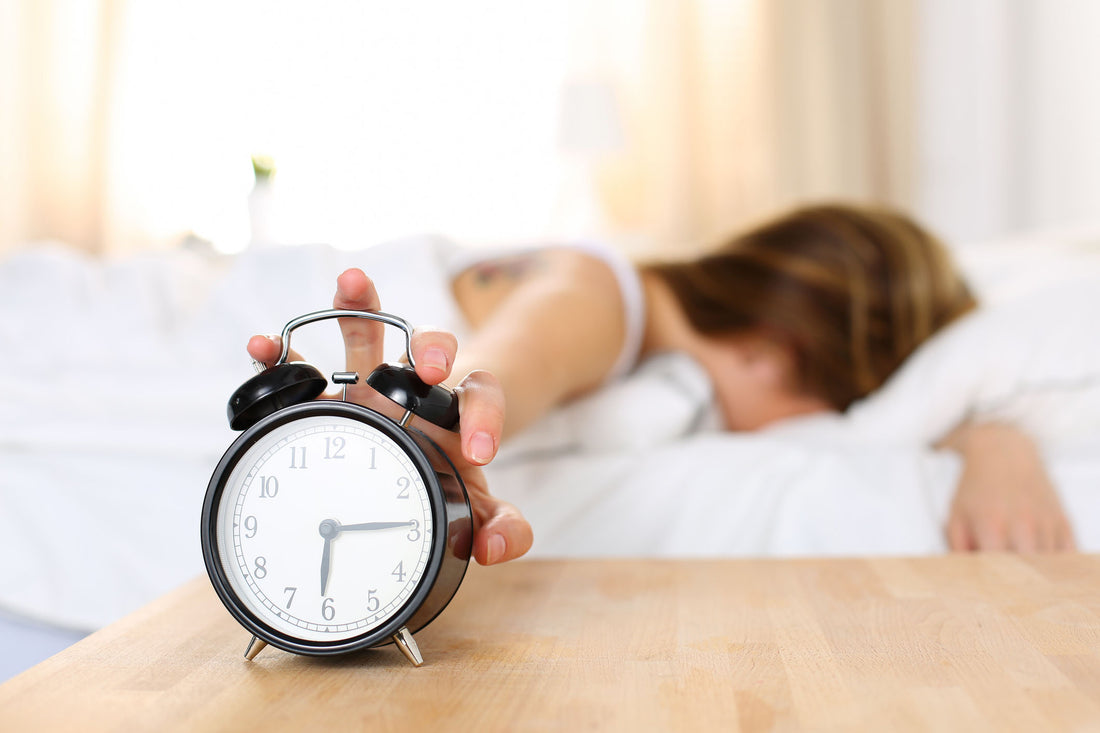News
Sleep Apnea and Seasonal Allergies
Are you suffering from seasonal allergies? You are not alone. Many people have to deal with the unpleasantness of allergy symptoms in the early spring, which can interfere with your ability to get a good night’s sleep. Allergies can be even worse for people who suffer from sleep apnea, since your airway is already compromised during sleep. A lot of allergy symptoms tend to worsen and cause nasal congestion, which can dry your mouth out or block your airway. Not a good thing with sleep apnea, especially if you use a CPAP machine to help you sleep at night. Luckily there are a few things you can do to help give some relief to your symptoms so you can sleep better at night. Here are a few tips: Take advantage of humidification: As great as the CPAP is for helping you sleep, it can also dry out your nasal passages, which can be extremely uncomfortable and worsen your allergy symptoms. Using a humidifier with your CPAP can help to keep your airway moist enough to promote proper breathing during sleep. Keep your CPAP mask in great condition: Make sure you are cleaning your CPAP mask and other parts on a regular basis. Sleeping in a dirty mask will only spread bacteria and germs through your airway as you sleep and make your allergies worse. Also, if your CPAP has a filter, make sure that it is changed on a regular basis as well. Take some medications to help relieve your symptoms: Taking an over-the-counter antihistamine before bed can help to alleviate allergy symptoms and help you sleep better at night. But if you are using CPAP therapy to sleep, make sure you clear this with your doctor first. Be mindful of your sleeping environment: If the pollen outside is particularly strong and bothering your allergies, don’t sleep with your windows open as this will only make your symptoms worse. Keep your windows closed at night and keep your bedding fresh and clean will help as well.
about Sleep Apnea and Seasonal AllergiesSleep and Pregnancy
wp:paragraph So you are expecting a little one! This can be both an exciting and overwhelming time with many changes happening to your body. One thing that many pregnant women notice is the numerous changes in sleep habits. Considering your body is growing a baby, this is to be expected. Sleep is most definitely not something you should sacrifice at this time as it is essential both for you and your growing baby! /wp:paragraph wp:paragraph Here are a few ways in which your sleep changes when you are pregnant; /wp:paragraph wp:paragraph Increased daytime fatigue: This is one of the most common symptoms! Many pregnant women find themselves exhausted and overly tired thanks to changing hormones. This can improve once you hit the second trimester but sticking to a consistent sleep cycle will help with this. /wp:paragraph wp:paragraph Insomnia: There are many reasons for insomnia in pregnant women, but anxiety is one of the most common thanks to all the unknowns between the labour and delivery as well as the anxiety of impending motherhood. Finding ways to deal with your anxiety (such as journaling or meditation) is important in helping with this. /wp:paragraph wp:paragraph Heartburn: Again, very common in pregnant women but this can keep you up at night. To help with this, avoid eating spicy foods, especially late at night. /wp:paragraph wp:paragraph Frequent bathroom trips: With a baby pushing down on your bladder, frequent bathroom trips in the night can often be unavoidable. Keeping hydrated is very important but try not to drink a ton of water before bedtime to help minimize this. /wp:paragraph wp:paragraph Difficulty getting comfortable: As your body grows and develops, you may find that the sleep positions you are used to are no longer working, and you may find yourself tossing and turning a lot. Sleeping on your side (especially on the left) is most recommended for pregnant women and using pillows to support your stomach and/or between your knees should help you get a little more comfortable. /wp:paragraph wp:paragraph Nausea: Although nausea occurs more often in the morning, it can still occasionally strike at night. Try keeping a few plain crackers on hand to help settle your stomach if need be. /wp:paragraph wp:paragraph Be sure to speak to your doctor if you are having difficulty getting a good night’s sleep. And if you need to take a short daytime nap or sleep a little bit longer, make sure you listen to your body! /wp:paragraph wp:paragraph Contact us for more information. /wp:paragraph
about Sleep and PregnancyDoes your CPAP need a spring clean?
wp:paragraph Now that the snow and cost weather is (mostly) gone, you may be taking the opportunity to do a bit of “spring cleaning” in many areas of your life. If you use a CPAP machine regularly to help with your sleep apnea, then this would be a great opportunity to give the parts of your machine a much-needed clean so your CPAP can work to its full potential. /wp:paragraph wp:paragraph Here are a few things to keep in mind as you start this process: /wp:paragraph wp:paragraph Supplies you will need: You will need access to lukewarm water, a mild unscented soap, and a damp cloth. Vinegar, diluted in water, would be great for cleaning places with lots of build-up of bacteria and hard water deposits (such as the tubing). Do not use any bleach or harsh chemicals on your CPAP, and never leave your CPAP out in the sun to dry. /wp:paragraph wp:paragraph How to deep clean your CPAP: Take the device apart completely, including the headgear and cushions, tubing, and any other chambers (such as the humidifier). Give each part a thorough clean with water and soapy water. As mentioned above, vinegar diluted in water can be used for a few areas that need extra attention. Make sure all of the parts are thoroughly rinsed and don’t put the CPAP back together until all parts are completely dry. The machine can just be given a quick wipe down with a damp cloth. /wp:paragraph wp:paragraph Take inventory of your CPAP parts: Take a moment to inspect all the parts on your CPAP machine to make sure they are still in good working condition. Many CPAP parts wear out from frequent use after a period and will need replacing. If anything is starting to show cracks, deficiencies, or other signs of wear and tear, then it may be time to replace that part. /wp:paragraph wp:paragraph Start a CPAP Cleaning Routine: As a general rule, you should be giving your CPAP a basic clean and wipe down on a regular basis (at least once per week, if not daily) especially for parts that touch your face. If you are not doing this then the spring can be a great time to start a routine for cleaning your CPAP, so all the parts can last longer and help you sleep better. /wp:paragraph
about Does your CPAP need a spring clean?What is Post Covid-19 Fatigue?
wp:paragraph If you have ever tested positive for Covid-19 and you have found yourself feeling a lot more tired than normal afterwards, you are not alone. /wp:paragraph wp:paragraph One of the many side effects of a Covid-19 infection, that has been known to affect many people is extreme fatigue. And unlike normal fatigue or daytime tiredness, this does not necessarily get better with lots of rest and can inhibit your day-to-day activities. As frustrating as this may seem, this is part of the body’s immune response to the virus for many people. Rest assured, it will get better, but it will take some time and it won’t happen overnight. /wp:paragraph wp:paragraph Here are a few tips to help you deal with the effects of post Covid-19 fatigue: /wp:paragraph wp:paragraph Pace yourself: It will take some time for your energy levels to return to what they were before you were sick. Listen to your body and adjust your return to normal activities based on your energy level and take a break if you need to. Try to prioritize things based on what you can and cannot do. /wp:paragraph wp:paragraph Gradually return to physical activity: You may not necessarily be able to run a marathon or participate in sports if you are dealing with Covid fatigue. If you live a physically active lifestyle, you will need to take your time to ease back into exercise, doing so too quickly could make it worse and prolong your recovery. Start with shorter walks and work up from there. /wp:paragraph wp:paragraph Get lots of sleep: Although you may already be sleeping more than you normally do, this will help your body to conserve energy and will enable you to take it slow with your recovery. Sticking to a solid and consistent bedtime routine will help with this. /wp:paragraph wp:paragraph Maintain a healthy diet: Although this may be difficult if you are dealing with a loss of taste and smell, nourishing your body with the proper vitamins and nutrients will be important in the healing process. Make sure you fuel your body with lots of healthy foods to aid with your recovery. /wp:paragraph wp:paragraph Contact us for more information. /wp:paragraph
about What is Post Covid-19 Fatigue?The Link Between Sleep and Self-care
wp:paragraph The idea of self-care has gained a ton of popularity in recent years and has been great for people to prioritize their overall health and wellness in many ways. Self-care is different for everyone, whether through a relaxing bubble bath, reading your favourite book, binge-watching your favourite TV show, eating a delicious healthy meal. /wp:paragraph wp:paragraph Do you include sleep as a part of your self-care routine? Sleep is indeed one of the most important forms of self-care, as it has so many benefits that include boosting your immune system, improving your mood and helping with your heart function, just to name a few. Here are a few tips for incorporating sleep into your self care routine /wp:paragraph wp:list wp:list-item Build a solid sleep routine: Our internal clocks thrive on routine for proper sleep and a good routine will help you to take the time to properly wind down before bedtime and sleep better. Everyone’s routine will be different based on your individual needs, preferences and daily schedule but try to keep it consistent and realistic for you. /wp:list-item /wp:list wp:list wp:list-item Create a relaxing sleep environment: The bedroom is meant to be a place that will promote relaxation and calmness. If your sleeping environment causes you stress or anxiety in any way, then this will have an overall negative effect on your sleep. A few ways to help with this include keeping your bedroom dark, diffusing some relaxing essential oils and keeping the temperature on the cooler side. /wp:list-item /wp:list wp:list wp:list-item Limit technology: Many people like to spend time on their electronic devices before bedtime but avoid doing this! Not only can this cause unnecessary anxiety, but the light on your devices can interfere with your sleep cycle and potentially lead to insomnia and daytime fatigue. Try to power off all your devices at least a half hour before bedtime and find another activity that will help you wind down before bedtime, such as yoga or reading. /wp:list-item /wp:list wp:list wp:list-item Practice healthy daytime habits: Maintaining healthy diet and exercise habits are essential to a good night’s sleep, however there are a few extra things you can do to improve your sleep beyond that. Try and limit daytime naps and avoid all forms of caffeine at least 6-8 hours before bedtime. Also limit alcohol and other recreational drugs before bedtime such as tobacco and cannabis that have been known to interfere negatively with your sleep cycle. /wp:list-item /wp:list wp:paragraph Contact us for more information. /wp:paragraph
about The Link Between Sleep and Self-careWhich Sleep Position is Best For You?
wp:paragraph Everyone has a preferred position that they sleep in almost consistently whether it’s on your side, your back, or your front. The position you sleep in plays a big role in the quality of your sleep, and different positions have different benefits, so there is no one size fits all approach. Here are a few of the different sleeping positions and their benefits. /wp:paragraph wp:paragraph Side Sleeper: This is one of the most common sleep positions that offers many benefits including alleviating digestion and reducing snoring. Many side sleepers prefer to either lie with their legs straight, or to keep their legs curled up close to their body in the fetal position. As great as this position can be, it has been known to cause lower backpain and shoulder stiffness. Using a pillow to prop your hips up can help with this. /wp:paragraph wp:paragraph Back Sleeper (Supine Position): Although not as common, this is the sleep position with the most benefits for your health. Not only does good old gravity help to keep your body evenly aligned over your spine, but it can also alleviate pressure on your back and joints. The only downside is that it is known to be a more difficult position for those with snoring or sleep apnea. Make sure you are properly supported with a good mattress and pillow and make sure you get the proper treatment for any sleep problems. /wp:paragraph wp:paragraph Front Sleeper (Prone Position): Sleeping on your front is not as common, although it has been known to reduce snoring and sleep apnea. Sleeping on your front side has been known to not only cause neck and back pain, as well cause strain to your muscles and joints. To alleviate this problem, make sure you invest in a good pillow and mattress. /wp:paragraph wp:paragraph Contact us for more information. /wp:paragraph
about Which Sleep Position is Best For You?Tips for Surviving “Covid-somnia”
wp:paragraph We are now officially two years into the Covid-19 pandemic that has changed so much about our lives in many ways. Maybe you or someone you know battled the Covid-19 virus, maybe your job has been affected, maybe you have had to change your travel plans and maybe you have not been able to see friends or family through all this. /wp:paragraph wp:paragraph One of the biggest changes that many people have experienced in the past two years is with their sleep, and “Covid-somnia” has become extremely common in the past few years. While things are slowly starting to look up with the decline in cases, if you are suffering from insomnia more often because of the pandemic, there are ways that you can turn your sleep around. /wp:paragraph wp:paragraph Here are four tips to survive Covid somnia: /wp:paragraph wp:list {"ordered":true} wp:list-item Be mindful of media consumption: All of the events happening in the world can certainly be distressing. As a result, watching, reading or listening to the news too much can induce anxiety and can interfere with your sleep as a result. While there is nothing wrong with wanting to stay up to date with all that is happening in the world, try to set limits on media consumption and try to avoid it too close to bedtime. /wp:list-item wp:list-item Find a relaxing activity to do: This can help you to unwind before bedtime and sleep better at night. This includes reading, meditation or taking a warm bath or shower. Starting this at least 30 minutes before bedtime can be very beneficial in getting a good night’s sleep. /wp:list-item wp:list-item Be careful with medications that promote sleep: While taking melatonin, or another over the counter medication can be a temporary solution to insomnia, experts recommend that you do not make this a regular thing. If your insomnia becomes chronic, then it is time to speak to a doctor for additional help. /wp:list-item wp:list-item Stick to a routine: Our internal clocks thrive on a consistent routine, especially when it comes to bedtime, as it is helpful to have some normalcy in these uncertain times. Make sure you get at least 7-9 hours of sleep each night and that you go to bed and wake up around the same time each day. /wp:list-item /wp:list wp:paragraph Contact us for more information. /wp:paragraph
about Tips for Surviving “Covid-somnia”Spring Forward your Sleep
wp:paragraph In just a few days, the clocks will be moving forward by one hour for the “spring forward” time change. Unlike the fall, where an hour is gained, the spring time change tends to be a little more difficult on many people. Since you lose an hour, your sleep schedule and routine may be thrown off a bit, leaving you feeling a little “off” for a few days afterwards. /wp:paragraph wp:paragraph Luckily there are a few ways to make this transition a smooth one. Here are a few tips for adjusting to the spring time change. /wp:paragraph wp:paragraph Transition gradually /wp:paragraph wp:paragraph Starting a few days beforehand, try to gradually move your bedtime earlier by just 15 minutes each night. This also means that you may be waking up a little earlier, however you will still be getting the same amount of sleep as normal. This will not only help you to feel well rested but will also help to lessen the effects of the time change once it happens. /wp:paragraph wp:paragraph Practice good sleep habits /wp:paragraph wp:paragraph Even with a time change, good sleep habits are important for a well-rested night of sleep. Don’t deviate from your normal bedtime routine and avoid heavy meals and stimulating substances before bedtime (including caffeine, alcohol and tobacco). It will also help to get some exercise in during the daytime, and to try and get as much sunlight as possible during the day to help with your internal clock. /wp:paragraph wp:paragraph Give yourself some grace /wp:paragraph wp:paragraph This transition does not come easily to everyone. If you are feeling affected by this in a negative way, know that you are not alone! If a short nap during the day will help you get back on track with your sleep schedule, this is not a problem as long as you do not make this a regular habit. Also, if you are experiencing insomnia because of this, try not to “sleep it off.” Rather than lying awake for an extended period, get out of bed and do a relaxing activity (such as reading) until you start to feel sleepy. /wp:paragraph wp:paragraph Contact us for more information. /wp:paragraph
about Spring Forward your SleepSleep Differences Amongst Couples
wp:paragraph Since Valentine’s Day is just around the corner, let’s talk sleep and your relationship. /wp:paragraph wp:paragraph If you and your partner share a sleeping space, then you may already know that some of your sleeping habits and preferences may differ. While sharing a bed with the love of your life may sound romantic, many couples have opposing sleep habits and preferences and have to learn to compromise and adjust to sleeping together, which is completely normal! /wp:paragraph wp:paragraph Here are a few “sleep differences” that many couples go through: /wp:paragraph wp:paragraph Different preferences for bedtimes /wp:paragraph wp:paragraph Everyone has their own bedtime preferences, and this can be dependent on many factors, including work, family responsibilities and more. In many relationships, one partner may be a night owl while the other is an early riser. While going to bed at the same time may sound nice, it doesn’t always work for everyone. If you and your partner don’t go to bed at the same time, make sure you respect each other’s sleep patterns, which includes avoiding the use of bright lights in the bedroom if the other partner is sleeping and using earplug so movement doesn’t wake the other partner. /wp:paragraph wp:paragraph Movement /wp:paragraph wp:paragraph Many people move around frequently in their sleep, which can be very disturbing to their partner. Practicing relaxation techniques before bed can be helpful and limit movement. You may also want to consider investing in a mattress that minimizes motion transfer. /wp:paragraph wp:paragraph The sleeping environment /wp:paragraph wp:paragraph Some of these factors can include the temperature of the bedroom, the number of blankets on the bed and any noise in the room (whether from a sound machine, music or the TV). These may be areas where you and your partner will have to have a discussion and make some compromises. Some of these may include sleeping with separate blankets, using earplugs to block out unwanted noise, taking the TV out of the bedroom and compromising on the room temperature. /wp:paragraph wp:paragraph Snoring /wp:paragraph wp:paragraph Snoring can often be very bothersome to the other partner, but there are ways to alleviate this. Oftentimes, snoring can be alleviated from maintaining healthy diet and exercise habits, or sleeping on their side but other times, medical intervention may be required. If you or your partner snore frequently, make sure you speak to your doctor to see if the snoring is due to a medical issue that may require treatment. /wp:paragraph wp:paragraph Contact us for more information. /wp:paragraph
about Sleep Differences Amongst Couples
